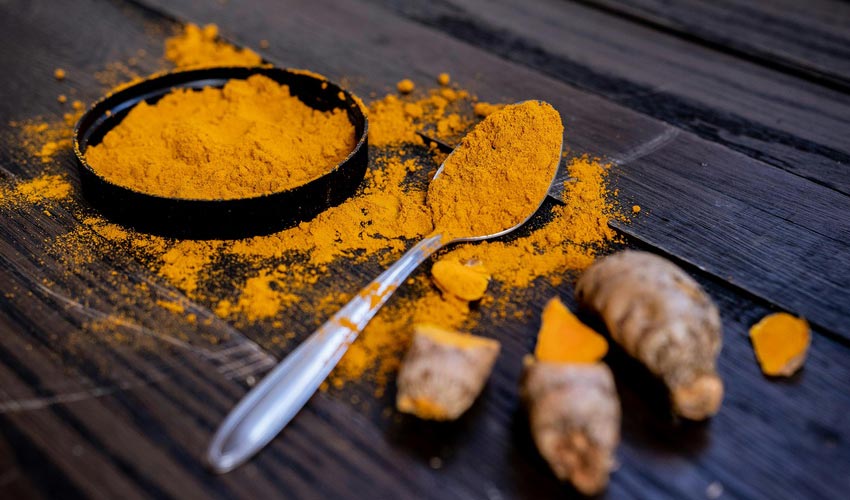Unlocking our Brain's Regeneration Potential - The Science & Strategy
I was blown away by some incredible brain health research that I recently stumbled upon. Have you ever found yourself longing for the good old days when your brain cells were thriving and not constantly on the brink of extinction thanks to your college escapades? Do you dread the thought of your brain ageing faster than a neglected potted plant? Well, the latest breakthroughs in medical science are debunking the myth that once you lose brain cells, they're gone for good. It turns out that not only can we improve the health of our brains, but we can also actively repair any damage that has been done. Yes, you heard that right! You can actually reverse the effects of your wild youthful indiscretions (or at least some of them). So, whether you're a seasoned scholar or a party animal turned responsible adult, it's never too late to give your brain the tune-up it deserves. Because let's face it, we could all use a little boost in the old thinker from time to time.
It's time to debunk the myth that our brains are like ancient scrolls - once damaged, forever scarred. Despite what the medical bigwigs have been preaching, our brain cells are actually more resilient than we give them credit for. Science is all abuzz with the revelation that our brains are capable of some serious DIY repair work. Forget what you've heard about irreparable damage - with the right techniques, our brains can stay sharp and sprightly for the long haul. So let's check out some brain-boosting practices and show those naysayers that our minds are anything but stagnant.

Revamping the Narrative of Brain Wellness
Welcome to the thrilling world of cognitive neuroscience, where new discoveries are as exhilarating as a joyride in a fancy new car. Just a mere century young, this field is constantly evolving, shedding light on the intricate workings of our brains. Gone are the days when we believed our brain cells were fragile, like a delicate vase doomed to shatter with any blow. Thanks to some rebels in the swinging sixties, we learned that our brains have a hidden superpower - the ability to regenerate and repair themselves. But of course, the old school medical crowd wasn't ready to embrace this radical idea.
Then in the rad 80's, along came Fernando Nottebohm, strutting his stuff and blowing our minds at Rockefeller University. He showed us that our brains can sprout new nerve cells even in adulthood. Cue the jaw drops and mind-blown emojis. Now, fast forward to today, where we're on the brink of a brainiac revolution. Our understanding is about to go from snail's pace to cheetah speed. The neural circuitry of the human brain is a mystery waiting to be unravelled, and we're armed with a magnifying glass and detective hat to crack the case. So buckle up, because the ride just got a whole lot more exciting. Who knows what dazzling discoveries lie ahead? The brain remains one heck of a riddle, wrapped in an enigma, just waiting for us to solve it.
The Elastic Brain
In 1992, a ground-breaking discovery was made - the adult mammalian brain could grow new neurons. What was once thought impossible by the medical establishment is now widely accepted in the scientific community. The brain, it turns out, is not set in stone but rather pliable, resilient, and yes, even a little bit plastic. Neuroplasticity is the term that describes the brain's amazing ability to rewire itself through practice and learning. It's like a magic trick, where new cells and new skills come together to create something truly incredible. When we challenge our brains with specific tasks and exercises, those fresh nerve cells get a workout and make new connections, paving the way for increased learning and skill development. Just like flexing a muscle, the brain thrives on nourishment and exercise. By taking care of our brains and giving them the proper stimulation, we can promote healing and growth throughout our lives. So, in the spirit of making brain regeneration a "no-brainer", here are some simple ways to keep your brain healthy, encourage new cell growth, and even help heal the brain:
Exercise Regularly
When someone tells you to "train your brain", you might picture doing crossword puzzles or Sudoku - not hitting the gym. But surprise, surprise, physical exercise isn't just for sculpting those biceps or toning that booty. It's actually a mind-blowingly good way to keep your brain in top-notch shape. You see, our brains are like bottomless pits when it comes to gobbling up glucose and oxygen. They're high maintenance, to say the least, and need a constant flow of these goodies to stay sharp. Luckily, when we break a sweat, our blood flow gets ramped up, delivering a juicy supply of oxygen and glucose to our noodle upstairs. Just half an hour of cardio can do wonders for your noggin, boosting cognitive function in brains of all ages.

And don't think that's all, folks. Exercise is like Miracle-Gro for our hippocampus, the part of our brain responsible for memories and emotions. It actually promotes the growth of new brain cells in this area, which is like anti-aging cream for your brain. This growth is essential as we get older, helping to stave off the dreaded cognitive decline that comes with diseases like Alzheimer's and dementia. So, next time you're debating between hitting the snooze button or hitting the treadmill, remember - your brain will thank you for choosing the latter. After all, a little sweat now could mean a sharper mind later.
Manage Stress
In our fast-paced, stress-filled world, finding ways to unwind isn't just a luxury – it's a necessity. The constant barrage of stress hormones can do a number on your brain, leading to cognitive decline as you age. But fortunately there is a solution – leisure activities. But not just any leisure activities – we're talking about brain-boosting, stress-busting pastimes that will keep your mind sharp and your stress levels low. So put down that remote and step away from the TV – it's time to engage your brain in some real mental gymnastics. Whether it's solving puzzles, playing games, or getting crafty with some quilting or knitting, studies have shown that stimulating hobbies can reduce your risk of cognitive impairment by a whopping 50%.
And if you thought simply admiring art was enough, think again. According to research, actively producing art can actually improve brain connectivity and boost psychological resilience. If arts and crafts aren't your thing, don't worry – there are plenty of other ways to relax and recharge. From meditative practices like yoga and mindfulness meditation to simply listening to some soothing music, there are endless ways to calm your mind and improve your overall well-being. So next time you're feeling overwhelmed, remember – a little leisure time might be just what the doctor ordered.
Incorporate Strategic Supplements
Turmeric… If you haven't jumped on the turmeric bandwagon yet, you're probably living under a rock - or at least someone who hasn't heard the hype about this fiery orange root. People everywhere are singing its praises, touting its ability to soothe achy joints, calm inflammation, and even lower the risk of heart disease. It's like the Swiss Army knife of super-foods, doing a little bit of everything to keep you feeling your best. But what really sets turmeric apart is its ability to work wonders on your nerves. This ancient herb is packed with remyelinating compounds, which essentially means it's a superhero for your nervous system. These compounds swoop in to repair the protective sheath around your nerves, helping to undo the damage caused by pesky autoimmune disorders and even those questionable vaccines.
And don't let anyone try to tell you that isolates are the way to go. While curcumin gets all the glory as turmeric's star player, new research has uncovered a hidden gem within this golden root - Ar-tumerone. This little-known component has been shown to work some serious magic on your brain cells, increasing their number and complexity to promote healing like never before. So, if you want to give your brain a boost and keep your nerves in top-notch shape, it might be time to add a little more turmeric to your diet. Trust me! Your body will appreciate a little Turmeric. Order your Organic Turmeric Powder Today!

Green & White Tea… In a delightful twist of fate, a 2014 study delved into the magical world of green tea and uncovered its secret weapon - catechins. These little guys, known as a main class of micronutrients, don't just sit back and watch the world go by. Oh no, they roll up their sleeves and get down to business. Turns out, green tea catechins are not just your run-of-the-mill antioxidants; they're also neuroprotective superstars that have the power to kick-start your brain into producing more neurons. And if that wasn't enough to blow your mind (pun very much intended), green tea has proven to be a game-changer in the treatment of 'incurable' neurodegenerative diseases like Alzheimer's, Parkinson's, and Huntington's. The therapeutic effects of green tea on damaged regions of the brain have researchers declaring it as a "highly useful complementary approach" in the fight against these debilitating disorders.
But wait, I’m not done yet! Further exploration into the mystical properties of green tea led scientists to concoct a magical elixir consisting of blueberries, green tea, and carnosine. This dynamic trio didn't just stop at promoting the growth of new neurons and brain stem cells. In an animal model of neurodegenerative disease, they pulled out all the stops and showed us just how powerful their combined forces can be. So next time you reach for that cup of green tea, know that you're not just sipping on a delightful beverage – you're indulging in a potion that could very well be the key to unlocking the mysteries of the brain. Cheers to green tea and its marvellous catechins, the unsung heroes in the battle against neurodegenerative diseases!
Ginkgo Biloba… Ginkgo Biloba isn't just some ancient herb that your grandma swears by - it's a veritable powerhouse in the world of herbal medicine. This ancient herb doesn't mess around when it comes to brain health, boasting a laundry list of at least 50 different health benefits and a rap sheet of over 100 diseases it can take down. One of the main reasons Ginkgo is such a rock-star in the medicinal world is its ability to crank up the levels of a little something called BDNF, aka brain-derived neurotrophic factor. This crucial protein is like the Avengers of brain repair, being a great help by healing damaged brain regions and keeping our brain cells happy and thriving - it's like the secret sauce for long-term memory.
In fact, Ginkgo is so dang effective that it's been giving Big Pharma a run for its money. A study in the European Journal of Neurology even crowned Ginkgo as a worthy competitor to the almighty Alzheimer's drug Donepezil - now that's some serious street cred. Just when you thought Ginkgo couldn't get any cooler, a recent study in Cell and Molecular Neurobiology dropped a bombshell by revealing a whole new layer to its brain-boosting powers. Turns out, Ginkgo can work its magic by activating neural stem cells (NSCs) and transforming them into exactly the kind of brain cells needed to kick some serious BDNF butt. So, if you want your brain to be firing on all cylinders and operating at top capacity, it might be time to hop on the Ginkgo train. After all, who needs a fancy lab coat when you've got Mother Nature's own intelligent medicine on your side?

Take Your Veggies… Looking to turn your lunch break into a brain-boosting session? Forget Sudoku, forget crossword puzzles - all you need is a side of freshly steamed broccoli to get those brain cells in tip-top shape. That's right, science has uncovered another reason to load up on the green stuff - a little something called sulphoraphane. This powerful compound, found in sulphur-rich veggies like broccoli, has been added to the brain-boosting hall of fame for its ability to stimulate nerve growth in our most precious organ. A study published in the prestigious journal Genesis not only confirmed sulphoraphane's ability to kick-start new nerve growth, but also revealed its impressive healing properties as an antioxidant and anti-inflammatory agent. And if that wasn't enough, this magical compound has also been shown to prevent disease and keep healthy neurons from sliding into an early retirement.
In addition, researchers were absolutely giddy over the fact that sulphoraphane not only encourages new nerve growth, but also helps neural stem cells morph into specific, helpful types of neurons. In other words, this stuff basically acts as a brain repair kit, fixing up any pesky neural damage like it's no big deal. So, what are you waiting for? Load up your plate with sulphoraphane-packed goodies like broccoli, Brussels sprouts, kale, and mustard leaves. Aim for at least 3 cups a day, whether raw or cooked. Your brain will thank you later.
Continuous Learning… As we gracefully embrace the passage of time, it's common to hear whispers of cognitive decline lurking around the corner. But there’s no need to despair, for there is hope yet! A clever brain knows no age, and the key to keeping it sharp lies in never putting our critical thinking skills out to pasture. Enter the enlightening 2011 study published in the illustrious Journal of Neuropsychiatry, where a group of sprightly seniors (ages 70-89) had their leisure activities analysed to gauge their impact on mild cognitive impairment (MCI). Lo and behold, it was revealed that the complexity of these activities was the magic ingredient for staving off MCI. Activities like tinkering with computers, diving into the depths of a good book, and engaging in brain-teasing puzzles were the heroes in this battle against cognitive decline. The not-so-stimulating activities? Well, they might as well have been taking a leisurely snooze for all the good they did.
But wait, there's more! In a dazzling display of longevity, a 2014 study followed nearly 3,000 volunteers over a decade to see just how far the benefits of cognitive training could stretch. The results were nothing short of miraculous. Participants not only saw improvements in brain processing speed and reasoning skills but also found themselves effortlessly conquering daily tasks like managing finances, whipping up gourmet meals, and even nailing their personal care routines. So, the moral of the story is clear: keep your brain buzzing with activities that challenge and excite you. In the immortal words of the wise researchers behind these ground-breaking studies, "The more you stimulate your mind, the more you're giving your brain a VIP pass to the fanciest party in town." So why wait? Let the cognitive festivities begin! Looking for some cutting-edge brain health food supplements? Make sure to visit Ancient Purity’s Mind, Brain & Cognitive Category.
"Everything we do, every thought we've ever had, is produced by the human brain. But exactly how it operates remains one of the biggest unsolved mysteries, and it seems the more we probe its secrets, the more surprises we find." - Neil deGrasse Tyson















